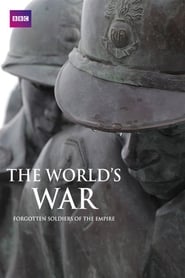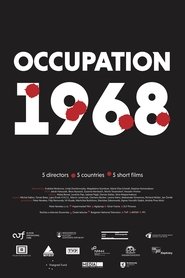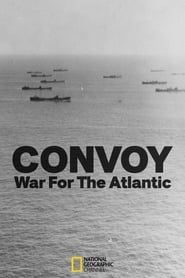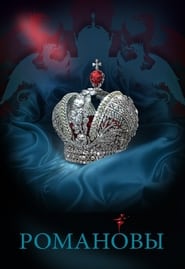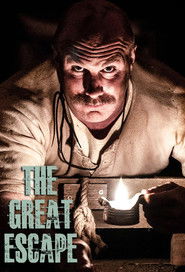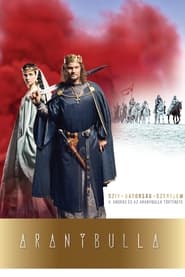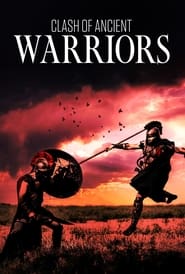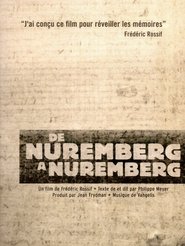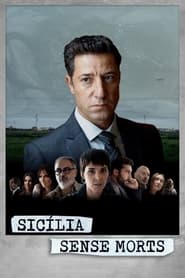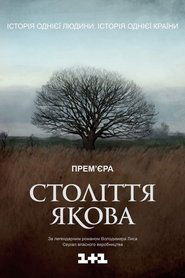War Politics TV Series - Page 106
-
The World's War: Forgotten Soldiers of Empire
2014
star 9British historian David Olusoga, along with other historians, narrates the story of millions of Indian, African and Asian troops who fought and died alongside French and British troops to help win the war against Germany, Austro-Hungary and the Ottoman Empire. -
The First War for Western Civilization
2016
The Greco-Persian War was pivotal in the creation of the modern world - yet all that is generally remembered are the 300 Spartans at Thermopylae. This documentary examines the whole history, from the Ionian Revolt (497BC) to the Peace of Callias (449BC), and also covers the legacies of the war - including Democracy. -
Occupation 1968
2018
Occupation 1968
2018
star 2Documentary about the Occupation, as seen through the eyes of the occupiers. Five countries from the Warsaw Pact occupied Czechoslovakia in 1968. Fifty years later, five directors from these five countries shoot five short films about the invasion from the perspective of the people who played the part of the occupiers. -
Historic Parking 1: The Deception of the French Channel
2022
Before the events of "Historic Parking 1: The Separation of Panama from Colombia" set in 1903, there was an attempt to build a French Canal in 1881, which went through tragedy, bankruptcy and international political intrigue that impacted worldwide and lit the spark that eventually exploded into the events of the Independence of Panama from Colombia. -
Convoy: War Of The Atlantic
2009
star 8The story of the Convoys is a tale of compelling drama, full of bravery and tragedy. It takes us into the lives of hundreds of thousands of unheralded men whose incredible everyday courage, played out in the cruel seas and cold skies of the North Atlantic changed the course of the war. -
The Romanovs
2013
The Romanovs
2013
star 6.8An elegantly produced documentary divided into eight parts and running nearly seven hours in length, The Romanovs beautifully encapsulates the epic story of the Russian Dynasty over the course of over three hundred years. -
The Drum
0000
The Drum
0000
star 10The Drum is an Australian current affairs and news analysis program which appears on ABC News 24 weekdays at 6:05pm. The program is presented by Steve Cannane. It was formerly hosted by Chris Uhlmann and has been hosted by Annabel Crabb. The main fill in hosts are Peter Lloyd, Tim Palmer and Peter Wilkins. The program follows on from The Drum website which offers blogs and discussions from various commentators. Regular contributors include Annabel Crabb, Barrie Cassidy, Leigh Sales, Jonathan Green, Michael Brissenden, Alan Kohler, Madonna King, Antony Green, Ben Knight, Dominic Knight, Craig Murtrie, Rhys Muldoon and Jeff Waters. In addition there have been many more guest contributors. -
I mihani tou hronou
2005
I mihani tou hronou
2005
star 8“The Machine of Time” is a Greek documentary series that explores history, shedding light on unknown aspects of events, people, and social phenomena. Through interviews, archival footage, and investigative research, it reveals the human stories behind major historical moments. -
Fritzi und Sophie - Grenzenlose Freundschaft
2024
Leipzig in 1989 – Germany divided into East and West. The twelve-year-old friends Fritzi and Sophie don't care much about this - until Sophie has to flee to the West with her mother. There she struggles with prejudices against 'those from over there', but above all with her homesickness. Fritzi's attempt to at least bring Sophie her dog Sputnik fails because of the heavily guarded border. Fritzi realizes that only the fight for freedom in her country can bring the two of them together again. -
The Great Escape
2021
The Great Escape
2021
star 8The story of the audacious Second World War prison break immortalised in the classic 1963 film, when 76 men tunnelled out of a German prison camp in March 1944 on a mission to cause mayhem in the heart of the Third Reich. The opening instalment reveals how the PoWs set about building three huge tunnels and preparing 200 men for escape from Stalag Luft III -
Aranybulla
2022
Aranybulla
2022
star 2King Andrew II's accession to the throne proved to be an adventure, and he set to work to take decisive action against the country's enemies. In 1222, he passed a set of laws that changed economic policy and became a unique document in the history of Europe. -
Ana alquds
2010
Ana alquds
2010
-
Clash of Ancient Warriors
2023
Clash of Ancient Warriors is a series that uses modern science to investigate the mysteries of the most legendary battles from ancient times. Spartans vs Persians in the battle of Thermoplyae, Hannibal vs Rome in the battle of Cannae, The Knights Templar vs Saladdin’s riders at Mongisard, Greeks vs Trojans in the siege of Troy...Military genius and epic battles have led the greatest civilisations to the pinnacle of glory...or the brink of collapse. Join scientists as they hunt for the hidden clues and traces of titanic clashes that could unlock the truth about how one army triumphed and changed the course of history. Unfolding s a countdown to annihilation, each episode builds on the scientist’s investigation to retrace, hour by hour, the dramatic chain of events that ultimately led one side to a bloody victory. -
Sicília sense morts
2022
Sicília sense morts
2022
-
The Unfinished Time: Russia in the 90s
2024
From the collapse of the Soviet Union to Putin’s rule: how Russia became free and what it did with this freedom. The story of Boris Yeltsin and his times, told by his comrades, family, friends, and foes. -
Iraq, Destruction of a Nation
2021
star 8.8The evolution of the former Saddam Hussein's Baathist regime, from the start of the 1980's Iran-Iraq war to the excalation of the ISIS/Daesh insurgency. in the 2000s. -
Moi, Belgique
2006
-
Jacob's Century
2016
Jacob's Century
2016
star 8The story is based on the history of Ukraine through the eyes of a long-lived Volyn peasant, Yakiv Mekh. Since childhood, he has been in love with Ulyana, but despite the reciprocity of feelings, her parents married her off to a boy from a wealthy family. Unable to change anything, Yakiv leaves the village. He joins the Polish army and meets a Polish noblewoman, Zosia... His fate includes wars, captivity, and the loss of loved ones, but its main outcome is the preservation of humanity and the ability to love. -
Lost Ships of WW2
2022
Lost Ships of WW2
2022
star 0.5Rob Kraft and his team aboard the research vessel Petrel are in search of the most iconic ships of WW2. Using some of the world's most high-tech equipment, their spectacular discoveries can now be seen for the first time in 80 years.
